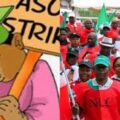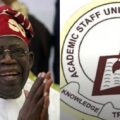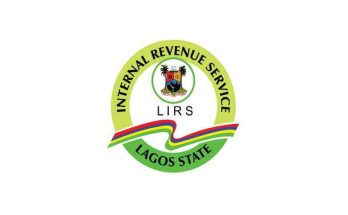By Oluwayanmife Ayobami
The Academic Staff Union of Universities (ASUU) has held numerous strikes over the decades in a bid to push the Nigerian government to improve funding and conditions at public universities.
However, these prolonged industrial actions have often had severe consequences for students and the education sector.
This in-depth article provides a comprehensive overview of all the major ASUU strikes since 1999 to better understand the roots and impacts of this long-running issue.
Struggles Against Military Regime (1980s-1990s)
In the 1980s, ASUU organized a National Strike in 1988 for fair wages and university autonomy but was proscribed and its property seized in August 1988.
Allowed to resume in 1990 but faced another ban in August 1992, leading to an agreement in September 1992 addressing some union demands, including collective bargaining rights.
Subsequent strikes occurred in 1994 and 1996 protesting against dismissals by the Sani Abacha military regime.
Fourth Republic (1999 Onwards)
Post-1999, during the Nigerian Fourth Republic, ASUU continued to demand rights for university workers despite opposition from President Olusegun Obasanjo’s government.
Strikes in 2002, 2007, and subsequent years highlighted issues such as financial mismanagement, improved salary schemes, reinstatement of dismissed lecturers, disagreements with the government on agreements, and funding for public universities.
Notably, strikes in 2013 lasted for 5 months and 15 days, emphasizing funding and revitalization of Nigerian public universities and unpaid allowances.
Recent Strikes and Prolonged Negotiations (2022)
In 2022, ASUU declared a one-month strike in February, citing demands for university revitalization, earned allowances, improved funding for state universities, and promotion arrears.
Prolonged negotiations ensued with strikes being extended multiple times, reaching six months without resolution, making it one of the longest ASUU strikes.
Despite several meetings and promises, negotiations between ASUU and the Federal Government failed, leading to continued strikes and the declaration of indefinite strikes by various university chapters.
Full list of ASUU strikes
| Year | Duration |
| 1999 | 5 months |
| 2001 | 3 months |
| 2002 | 2 weeks |
| 2003 | 6 months |
| 2005 | 2 weeks |
| 2006 | 3 days |
| 2007 | 3 months |
| 2008 | 1 week |
| 2009 | 4 months |
| 2010 | 5 months |
| 2011 | 59 days |
| 2013 | 5 months |
| 2017 | 1 month |
| 2018 | 3 months |
| 2020 | 9 months |
| 2022 | February 14, 2022 – October 14, 2022 (8 months) |
Origins of frequent strikes
ASUU has frequently resorted to strike action due to the government’s failure to fulfill agreements signed with the union.
Some of the key demands have included increased funding for universities, payment of salaries and allowances, better infrastructure and working conditions for lecturers.
The union argues that chronic underfunding by successive governments has deteriorated the standard of education in public universities.
This has compelled ASUU to take a hardline approach through strikes to draw attention to their demands.
Impacts on students
The strikes have severely disrupted the academic calendars of Nigerian universities time and again. Students suffer long interruptions in their studies, which pushes back their graduation dates.
This is not just an inconvenience but also has financial implications as students have to pay additional school fees for the prolonged duration of their courses.
The quality of education also suffers when there are gaps between semesters. Some students are even unable to complete their programs due to multiple strikes over the years.
Impacts on parents
Parents bear the heavy economic burden of children who get delayed in completing their university education. They have to pay higher fees for the extra semesters and years it takes for their wards to graduate.
This additional financial strain comes at a time when the cost of university education is already high in Nigeria. The psychological stress on parents is also immense as they see their children’s futures hampered by the recurring strikes.
Impacts on universities
The strikes have disrupted academic calendars, examination schedules, admissions processes and other administrative work at Nigerian universities. Research activities also suffer major setbacks.
The disruption in the academic environment has had negative impacts on the overall standards and reputation of Nigerian higher education over the years. It also demotivates hardworking staff and demoralizes the student community. The cycle of strikes is weakening the university system.
Impacts on Human Capital Development
The incessant ASUU strikes have seriously undermined efforts to build a knowledgeable workforce and drive socio-economic progress in Nigeria. Each strike results in the loss of thousands of skilled graduates that the country desperately needs.
It also discourages talented Nigerian students from pursuing higher education locally due to the unstable academic environment. This has major long-term consequences for national development and global competitiveness.
The decades-long ASUU strike saga in Nigeria highlights deep-rooted issues that need urgent resolution for the future of tertiary education and the country’s human capital. Unless both parties find a viable solution, the damaging cycle of disruption will likely continue.








